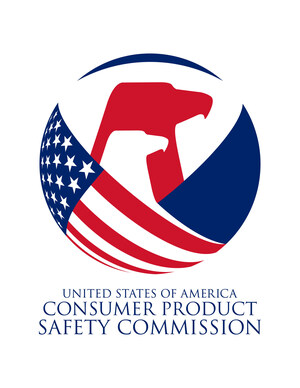
WASHINGTON, June 29, 2012 /PRNewswire-USNewswire/ -- As the Independence Day holiday approaches and families enjoy time together in pools across the country, the U.S. Consumer Product Safety Commission (CPSC) is sharing some sobering statistics on the number of drownings during previous July 4th holidays. CPSC Chairman Inez Tenenbaum is reminding parents and caregivers to pool safely during upcoming pool parties and celebrations with family and friends.
(Logo: http://photos.prnewswire.com/prnh/20030904/USCSCLOGO)
"Along with fireworks, spending time in the pool is a traditional July 4th activity for many families," Chairman Tenenbaum said. "Child drownings are a preventable tragedy, so we encourage all families who are planning to spend time in pools and spas over the Independence Day holiday and all summer to adopt as many safety steps as possible. You never know which safety step will save a life—until it does."
According to analysis of media reports by USA Swimming, the national governing body for the sport of swimming, in 2011, there were 25 drowning incidents involving children younger than 15 reported over the week of the July 4 holiday (June 30 through July 6). In 2010, 24 drowning incidents were reported during that same week. CPSC reports that annually there are about 390 pool or spa-related drownings for children younger than 15. Another 5,200 children of that age go to hospital emergency rooms for near-drowning injuries. An unknown number of children are seriously brain-damaged.
CPSC's Pool Safely campaign (www.PoolSafely.gov) is a national public education effort to reduce child drownings, near-drownings and entrapments in swimming pools and spas. The campaign's message is that Simple Steps Save Lives. Simple water steps that could help families avoid a tragedy this holiday include:
Staying Close, Being Alert and Watching Children in and Around the Pool
Never leave a child unattended in a pool or spa and always watch your children closely around all bodies of water
- Teach children basic water safety tips
- Keep children away from pool drains, pipes and other openings to avoid entrapments
- Have a telephone close by when you or your family are using a pool or spa
- If a child is missing, look for him or her in the pool or spa first
- Share safety instructions with family, friends and neighbors
Learning and Practicing Water Safety Skills
- Learn how to swim and teach your child how to swim
- Learn to perform CPR on children and adults, and update those skills regularly
- Understand the basics of life-saving so that you can assist in a pool emergency
Having the Appropriate Equipment for Your Pool or Spa
- Install a four-foot or taller fence around the pool and spa and use self-closing and self-latching gates; ask your neighbors to do the same at their pools
- Install and use a lockable safety cover on your spa
- If your house serves as a fourth side of a fence around a pool, install and use a door or pool alarm
- Maintain pool and spa covers in good working order
- Ensure any pool and spa you use has drain covers that comply with federal standards, and ask your pool service provider if you do not know
- Have lifesaving equipment such as life rings, floats or a reaching pole available and easily accessible
The U.S. Consumer Product Safety Commission is charged with protecting the public from unreasonable risks of serious injury or death from thousands of types of consumer products under the agency's jurisdiction. CPSC is the lead agency in implementing and enforcing the Virginia Graeme Baker Pool and Spa Safety Act, an important child safety law that became effective in December 2008. Learn more about the U.S. Consumer Product Safety Commission at www.cpsc.gov.
CPSC Recall Hotline: (800) 638-2772
CPSC Media Contact: (301) 504-7908
SOURCE U.S. Consumer Product Safety Commission






Share this article